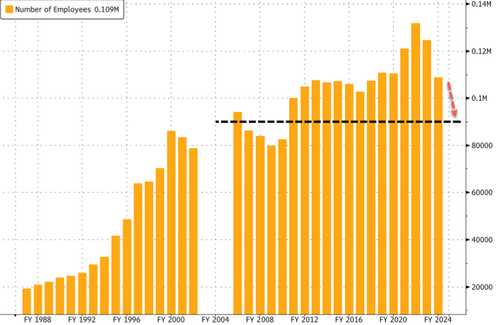The ‘Great’ in Great Britain is a geographic descriptor but one that for the longest time could easily be confused with the country’s global political and economic influence. The beginning of the end perhaps started with the Britain’s relegation to secondary power status post-World War II but the vote to exit the European Union in 2015 in many ways confirmed the end as it were. A once great empire that was willing to take on global challenges is no longer willing to gaze beyond its navel.
The ultimate sign in many ways is the fact that the new British Prime Minister, Rishi Sunak, former home secretary and his cabinet colleague Priti Patel as well as her successor Suella Braverman are all Brexiters and the last two rabidly anti-immigrant despite the fact that all of them are the children of immigrants themselves and the beneficiaries of globalization. This is as twisted a form of the empire striking back as is possible.
In his tweet about his call with Indian Prime Minister Narendra Modi, Sunak declared himself “excited about what our two great democracies can achieve as we deepen our security, defence and economic partnership in the months & years ahead”. But a right-wing nationalist government in New Delhi with a particular view and politics towards the Indian diaspora is unlikely to take kindly to the kind of policies Braverman is espousing that will most likely affect, if not target, prospective migration to the UK from India. This has reportedly already had an impact on the concluding of an India-UK FTA, originally envisaged before Diwali.
What’s more, Braverman’s obnoxious statement describing “a plane taking off to Rwanda” as “That’s my dream. That’s my obsession”, also goes against everything India stands for in terms of international norms and its own leadership of the Global South. In the same role, India will also have reason to be peeved at Britain’s new prime minister deciding to skip the COP27 climate summit at Sharm El-Sheikh in Egypt next month. This despite his declaration that the environment was a priority for him and having earlier promised to attend the summit. Britain is likely to continue as a significant culprit in the increasing reluctance of the developed world to take its fair share of blame for climate change as well as to do its fair share in mitigation efforts.
The ‘failure of leadership’ on climate is simply another event in a long list that signifies Britain today is a declining global power.
Meanwhile, if the UK is not making any friends in the developing world, it is not doing much better elsewhere either.
In its immediate neighbourhood, Brexit has not only cost Britain decades of goodwill and security, it is also the original sin that has led to the country’s current economic woes ranging from high inflation to falling living standards and declining public services. Sunak’s government, meanwhile, seems determined to hurry towards complete separation as the British parliament continues to discuss a bill to get rid of all European Union legislation by the end of 2023.
And as the European Union struggles to deal with “this competitive and fractured world”, Britain does so by itself with limited support from across the Atlantic. Trumpian America is here to stay and will provide cold comfort to the UK and especially one with a non-white Hindu prime minister. While US President Joe Biden was on the phone with Sunak soon after the latter’s taking over as prime minister, and the two countries agreed to work together to support Ukraine and to “address the challenges posed by China”, the Americans have, in fact, much cause to be annoyed with the Brits.
Washington is concerned, for example, that London’s position on post-Brexit arrangements in Northern Ireland has the potential to affect peace in the region. Meanwhile, the laxity represented by China being able to lure retired British military pilots to train its People’s Liberation Army personnel is the troubling counterpoint to the UK’s participation in such security pacts as AUKUS with the US designed to support Australian nuclear submarine capability to deal with Chinese maritime threats.
Following the thoughtless economic policies of the Liz Truss government, Britain now pays a “moron risk premium” on its debt. Sunak and his colleagues must be careful not to be saddled with a similar premium in the realm of foreign policy.
Download The Mint News App to get Daily Market Updates.
More
Less















